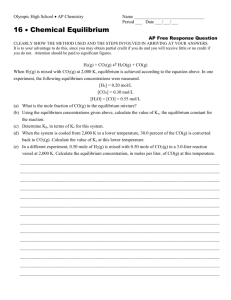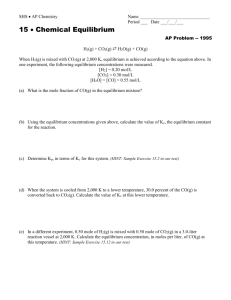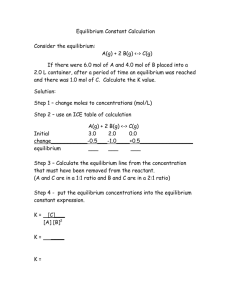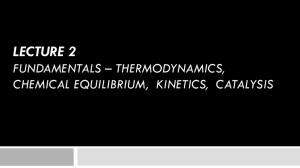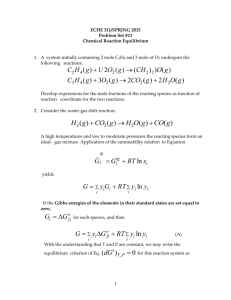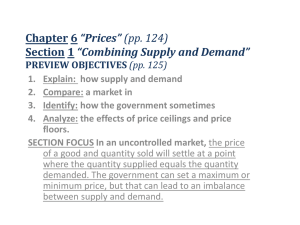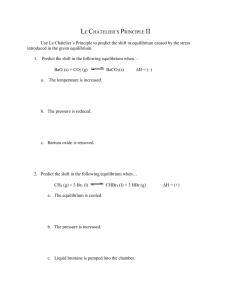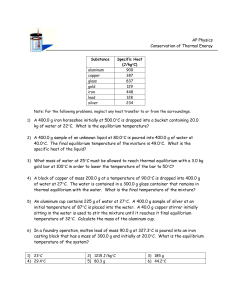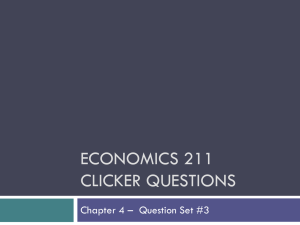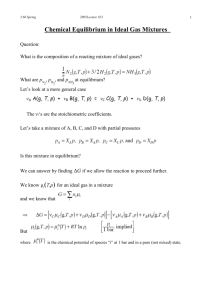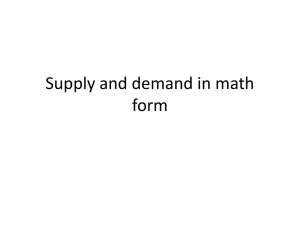PS-11_FALL_2008
advertisement
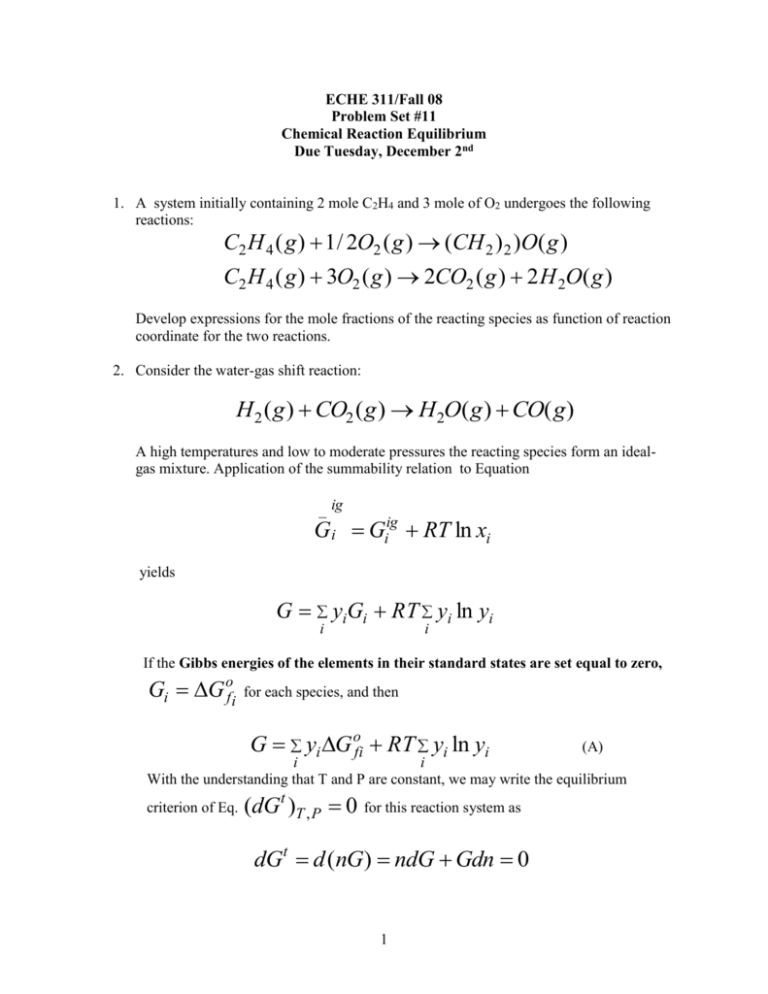
ECHE 311/Fall 08 Problem Set #11 Chemical Reaction Equilibrium Due Tuesday, December 2nd 1. A system initially containing 2 mole C2H4 and 3 mole of O2 undergoes the following reactions: C2 H 4 ( g ) 1 / 2O2 ( g ) (CH 2 ) 2 )O( g ) C2 H 4 ( g ) 3O2 ( g ) 2CO2 ( g ) 2 H 2O( g ) Develop expressions for the mole fractions of the reacting species as function of reaction coordinate for the two reactions. 2. Consider the water-gas shift reaction: H 2 ( g ) CO2 ( g ) H 2O( g ) CO( g ) A high temperatures and low to moderate pressures the reacting species form an idealgas mixture. Application of the summability relation to Equation _ ig G i Giig RT ln xi yields G yiGi RT yi ln yi i i If the Gibbs energies of the elements in their standard states are set equal to zero, Gi G of i for each species, and then G yi G ofi RT yi ln yi (A) i i With the understanding that T and P are constant, we may write the equilibrium t criterion of Eq. (dG )T , P 0 for this reaction system as dGt d (nG) ndG Gdn 0 1 or n dG dn G 0 d d For the water-gas –shift reaction, becomes dn / d 0 . The equilibrium criterion therefore dG 0 d Once the (B) yi are eliminated in favor of , Eq (A) relates to . a) Determine the equilibrium value of e by application of Eq.(B) at 1,000; 1200 and 1500 K. b) Plot G vs , indicating the location of the equilibrium value of e determined in (a). Discuss the results. Hint: G of / Jmol 1 Data got example of your textbook (SVNA) For a temperature of 1,000; 1200 and 1500 K (the reaction is unaffected by P) and for a feed of 1 mole H2 and 1 mol CO2. Find By Eq. 13.5 calculate By Eq (A) and data from Example 13.3 at above temperatures write expressions for G ( ) = Guess value for Given and for the compounds of interest are given in the n0 yH 2 = yCO2 and yH 2O yCO e 0.5 d G ( e ) 0 find e d e Plot G ( ) vs for 0.3,0.31..0.6 3. For the ammonia synthesis reaction written 1 3 N 2 ( g ) H 2 ( g ) NH 3 ( g ) 2 2 2 with 0.5 mol N2 and 1.5 mol as the initial amounts of reactants and with the assumption that the equilibrium mixture is an ideal gas, show that e 1 (1 1.299 K P 1 / 2 ) Po 4. I asked Daniel Pittman , Punyawudho Conlayutt and Lee Zachary, members of our thermodynamic class to find equilibrium composition at a particular T and P and for given initial amounts of reactants for the following gas-phase reaction: 5 2 NH 3 3 NO 3H 2O N 2 2 (A) Each solves the problem correctly in a different way. Daniel bases his solution on reaction (A) as written. PC who usually likes “well rounded things” prefers whole numbers and multiplies reaction (A) by 2. 4 NH3 6 NO 6H 2O 5N2 LZ, who usually does things backward, deals with reaction: 5 3H 2O N 2 2 NH 3 3 NO 2 Write the chemical-equilibrium equations for the three reactions, indicate how the equilibrium constants are related, and show why, D, P and L all obtain the same results. 5. The following reaction reaches equilibrium at 500oC and 2 bar: 4HCl ( g ) O2 ( g ) 2H 2O( g ) 2Cl2 ( g ) If the system initially is an equimolar mixture of nitrogen and acetlylene, what is the composition of the system at equilibrium? Assume ideal gases. Hint: Use the routine outlined in Example 5. 3

